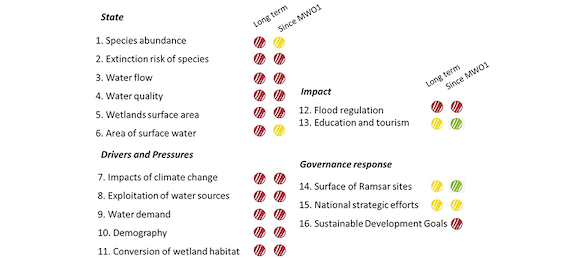Abstract
The Ramsar Convention is the multilateral agreement aimed at protecting wetlands globally. Wetlands are particularly recognized for their role in the Mediterranean biodiversity hotspot by providing key habitats for endemic and migratory species, directly contributing benefits to the lives of people and being an integral part of their culture. In response to this importance, the Mediterranean Wetlands Observatory publishes Mediterranean Wetland Outlooks (MWOs) on the state and trends of Mediterranean wetlands; the first edition in 2012 (MWO1) and the second edition in 2018 (MWO2). In this paper, we used the results of the two Mediterranean Wetland Outlooks to highlight ways to increase the impact of the Ramsar Convention by identifying the spatial dimensions of detected biodiversity trends as well as the societal developments and estimated impacts of global change and protection status.

Geijzendorffer IR, Beltrame C, Chazee L, Gaget E, Galewski T, Guelmami A, Perennou C, Popoff N, Guerra C, Leberger R, Jalbert J. (2019) A more effective Ramsar Convention for the conservation of Mediterranean wetlands. Frontiers in Ecology and Evolution.7:21. doi: 10.3389/fevo.2019.00021
